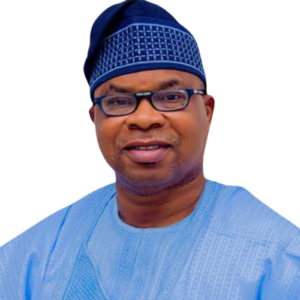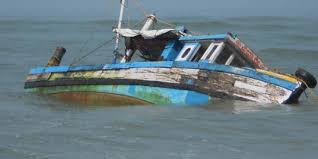A tragic boat accident that occurred on the Gbajibo River in Niger State, resulted in the deaths of at least 60 people, mostly women and children. The boat was carrying around 300 passengers who were returning from a Maulud religious festival in the area. The vessel capsized near Mokwa Local Government Area, sparking a large-scale rescue operation led by the Niger State Emergency Management Agency (NSEMA).
By the end of the following day, approximately 60 bodies had been recovered, but many passengers remain missing. The rescue efforts are still ongoing, with some survivors rescued, but the exact cause of the accident remains unclear.
Nigers Water Terrain
Niger State is significantly defined by its waterways, which play a critical role in transportation, trade, and communication across the state. With over 3,000 kilometers of navigable waterways, Niger State is linked to multiple other states and even neighboring countries, enhancing its importance as a key transport corridor. The state’s waterways are fed by major rivers like the Niger and the Kaduna Rivers, which are essential for both local and inter-state trade, as well as transportation. Unfortunately, despite this natural advantage, Niger State’s waterways face significant challenges in terms of safety, infrastructure, and management. The tragic boat accident that occurred recently, highlights the pressing issue of inadequate safety standards and regulatory oversight. This incident, brings into focus the need for greater attention to the management of these waterways. The disaster raises concerns about the safety of boats, overloading, and the lack of proper safety equipment, all of which are exacerbated by poor enforcement of regulations.

Who’s responsible?
Niger State’s waterways are under the purview of the National Inland Waterways Authority (NIWA), which aims to develop these resources for safe navigation. It was established in 1997 under the National Inland Waterways Authority Act to manage and regulate Nigeria’s inland waterways. Its primary functions include overseeing the operation of navigable rivers, lakes, and other inland bodies of water, but local implementation of regulations and infrastructure improvements has been inconsistent. The current Managing Director (MD) of the Authority is Alhaji Munirudeen Oyebamiji and was appointed by President Bola Tinubu in October 2023.

NIWA operates across several states in Nigeria, focusing on regions with significant water bodies. Some of the states under its jurisdiction include: Kogi State (the home to the confluence of the Niger and Benue Rivers), Lagos State (Key for coastal and inland waterway operations), Niger State: Known for the Niger River, Rivers State (vital for local and commercial river transportation), Delta, Ogun, and Anambra States. Each year, NIWA focuses on improving safety and accessibility in these areas. For example, in Lagos alone, they license approximately 2,200 boats annually and aim to remove five wrecks.
According to reports, the agency in multiple times has struggled with inadequate enforcement of safety regulations, such as boat overloading, poor maintenance of vessels, and the failure to ensure the use of life jackets. These failures have resulted in tragic accidents, some of which have claimed scores of lives, particularly in areas like Niger State. The authority lacks the resources and infrastructure to manage the vast number of waterways across Nigeria. There is also discussion surrounding a potential dissolution of NIWA, as outlined in the Orosanye report, which recommends transferring its responsibilities to the Nigerian Ports Authority (NPA) and the Nigerian Maritime Administration and Safety Agency (NIMASA).
What’s Next?
Although some local officials, including the Niger State governor, Umaru Bago, have pledged to ensure stricter adherence to safety protocols, including a renewed focus on preventing overloading, it remains unclear whether any immediate compensation for the families has been announced. Victims’ families have recounted their devastating losses, and the state government has been urged to provide more robust support and infrastructural solutions to prevent future tragedies.
The government needs to enhance its focus on regulating these waterways, ensuring the safety of all users, and improving the physical infrastructure such as jetties, terminals, and navigational aids. Strengthening the capacity of local authorities to enforce safety standards, alongside investing in regular maintenance of boats and ferries, would be vital in preventing future tragedies.








